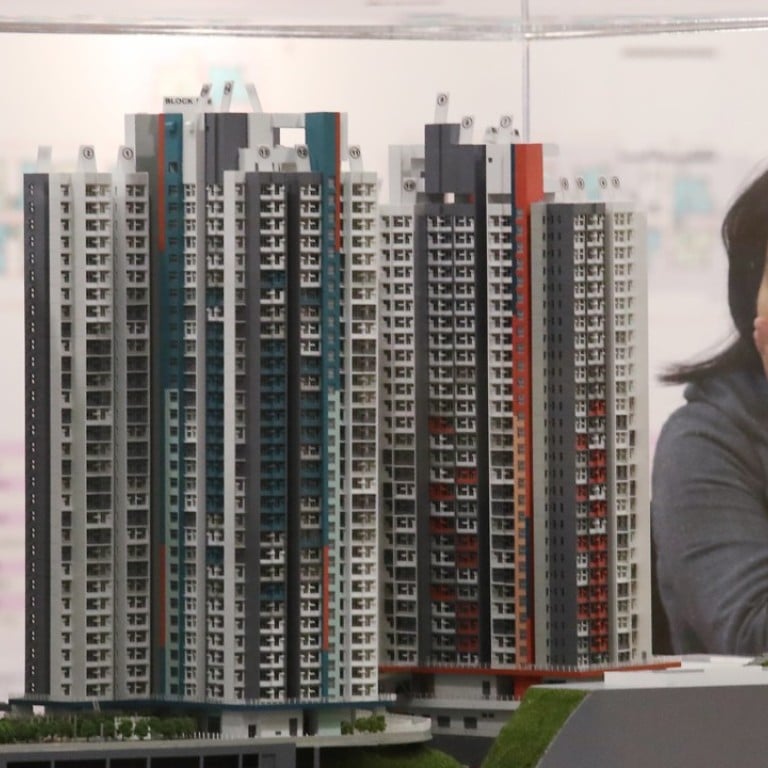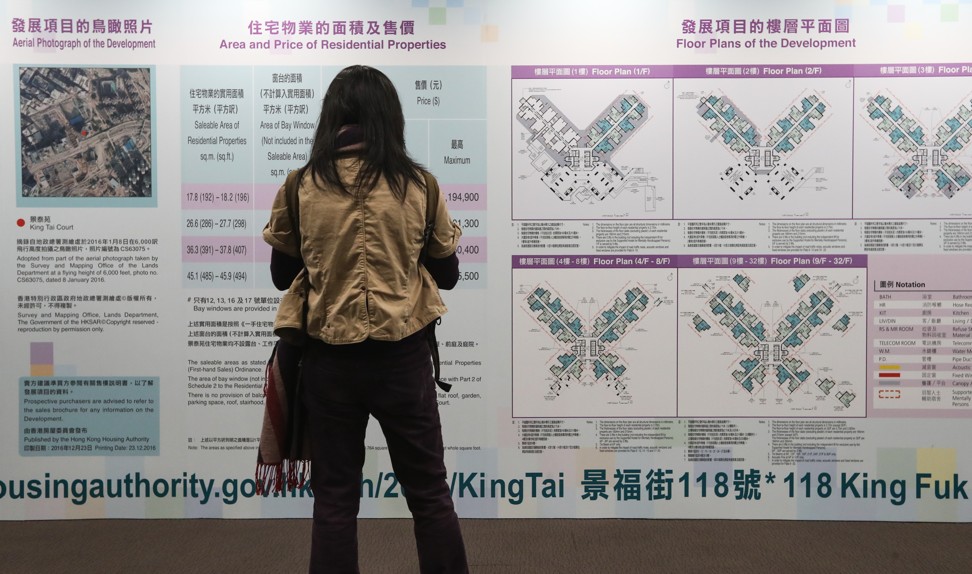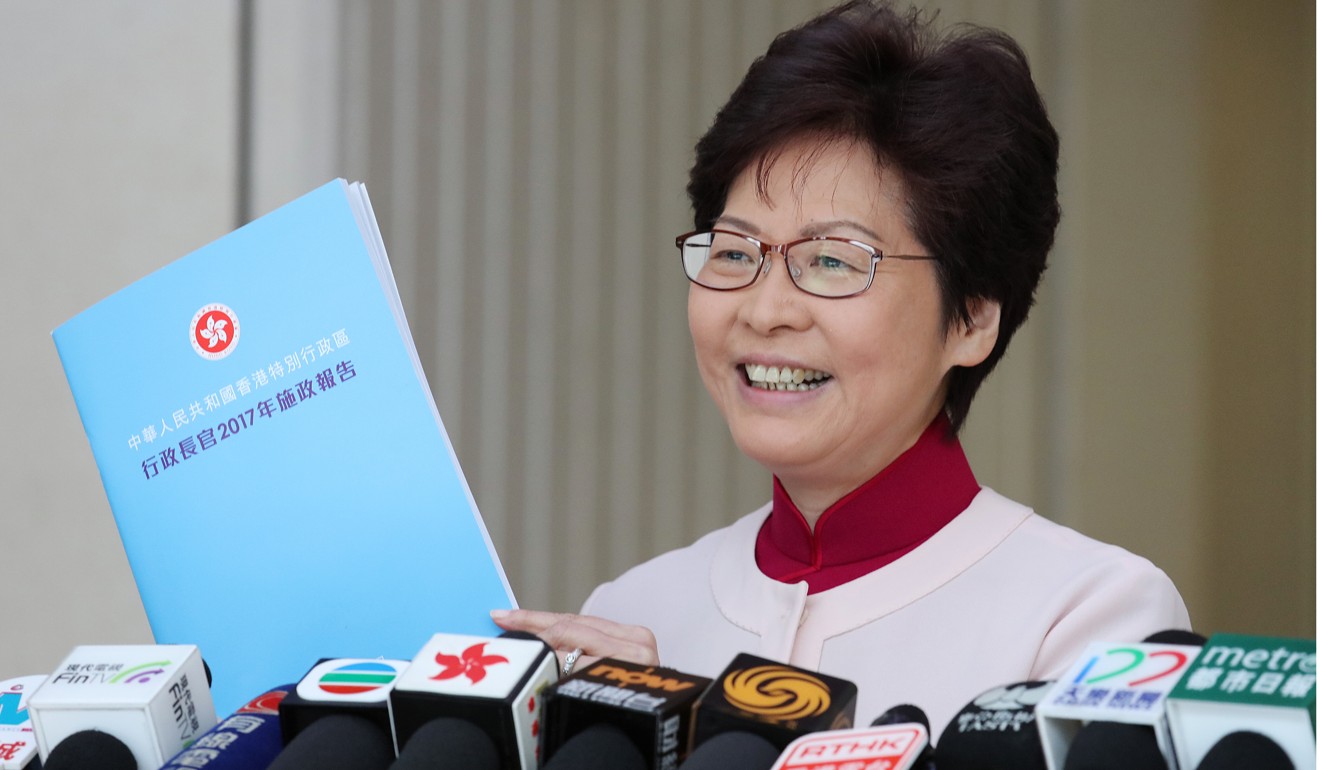
Growth in Hong Kong home prices slows after ‘spicy’ market restrictions launched
Official data for July and August shows growth tapering off, but prices still hit a record high
Hong Kong property prices rose at a slower pace in July and August as government cooling measures launched a year ago showed signs of taking effect, according to the latest official data.
But the runaway prices, which are among the highest in the world, still hit a record high in August despite several rounds of so-called “spicy measures” implemented by the government to try to cool the overheated market.
Month-on-month growth in prices tapered off to 0.3 per cent in July and 0.4 per cent in August, compared with 3.1 per cent in September and 2.7 per cent in October last year, housing and transport minister Frank Chan Fan said on Wednesday in a written reply to the city’s legislature.
Chan said the current property tax regime in the city had been “eminently effective in reducing investment demand”.

Analysts said the measures had played a small part in the slowdown as increases in house prices had tapered off in recent months after rapid growth in the first half of the year.
Hong Kong leader Carrie Lam Cheng Yuet-ngor said existing cooling measures were just “spicy enough” and she had no intention of either relaxing or further tightening them.
Restrictions on Hong Kong property market to cool prices won’t change, leader indicates
There was a sharp decline in residential property transactions subject to the two types of stamp duty.
These transactions accounted for only 11 per cent of the total number from December last year to September – lower than the 26 per cent recorded before the duty rate was raised to 15 per cent for non-first-time buyers in November, Chan said. He said the figures indicated there were fewer people who already owned a house jumping into the market for investment purposes.

The government also plugged a legal loophole that allowed wily first-time buyers to purchase multiple flats in one go to avoid higher levies.
In April, the government added an additional clause ordering buyers who make multiple purchases in a single transaction to pay the 15 per cent stamp duty for each property.
The ratio of such transactions to the total number fell sharply from about 2.5 per cent in March and 2.7 per cent in April, to just 0.2 per cent in September, Chan said.
Despite long commutes to save money, Hong Kong couple just can’t keep pace with rising property prices
However, Sammy Po Siu-ming, chief executive of Midland Realty’s residential department, said the government should not take credit for the recent slowdown in the market.
“House prices rose 8 per cent in the first half of the year. The market only started slowing down in the third quarter because the prices were too high and buyers were waiting,” Po said.
“If the cooling measures had worked, the market wouldn’t have reacted like that.”

